Gabriel García Márquez (Aracataca, Colombia, 1927) is, according to my personal judgement, the most influential Colombian writer in Latin American literature. His literary output, widely known in South America, has been the subject of many studies and also a household name in writers, students, lecturers as well as high school teachers which is absolutely fair, since his work has a magic of its own: his stories are subtle, immensely readable, wholly fascinating. The Spanish language in his books is elegant, unique and distinguished but at the same time it has the ability to reach all kinds of people in linking our history with the ordinary folk, the common reader. His fantastic, sometimes extravagant stories are what we call magic realism. Somehow, García Márquez has managed to establish a relation between his country, the myths and the political upheavals with the novels and tales he has been writing for the last fifty years. Since his first works and the inception of magic realism, the Colombian author has mirrored the violence and intolerance that are typical and tragic aspects of his country’s history. This is a sort of explanation about the context within which his narrative has developed and this also explains how, from 1960 onwards, many young writers took by storm the artisitic avant garde.
This phenomenon, known by the word “boom” was also called the New Latin American Literature or the New Novel. It was a tremendous earthquake in Spanish letters and also in the whole of European literature. Its main features are: the coalescence and the emergence of new ways in prose writing, above all the novel (therefore, we have new forms and the reader becomes the writer’s ally and feels he is also a hero in his fictions); the language becomes synchronic, ie, it purports to be the reflection of different social strata, places and modes of speaking and from now on characters as well as writers will be the same; the novel will be a total fiction, which means a breakup with the traditional reality, exploding in a liberating creative fantasy and the magic realism. Bearing in mimd all these aspects, it is easy to see why García Márquez is the foremost representative of the Latin American boom. Consciuousness freely launched towards new grounds is now creative imagination.
This intellectual movement, strongly related to society and politics gave a tragic and terrible impact to his tales. In his own words poets and beggars, musicians and wizards, warriors and criminals, all beings belonging to that demential reality have been the source of our books because the main challenge has been to make use of our own lives in order to overcome the limitations and scarcity of conventional means so as to reflect the true nature of our history. This is, my friends, the core of our solitude, adding a new and devastating utopia, where nobody can decide for the rest even the way of dying, where love and happiness are viable and where the humans condemned to one hundred years of solitude have a real second chance in the world (Nobel Prize Speech, 1982).
García Márquez began his literary output with “La hojarasca” (1954) where we find for the first time Macondo, the imaginary town that initiated his most famous narrative series.
However, what is magic realism? Above all, it is an artistic and literary current that emerges as an answer to the decline of the novel, especially in Europe. I mention now the avant garde since the 50’s and its inevitable and claustrophobic selfcenterdness. In spite of this, the art of writing, thanks to this influence, was suggestive, experimental, ambiguous. The reader was obliged not only to interpret a text but also to understand it, thus becoming a part of the story, another character in these fictions. In some ways, it is similar to what happens in pictorical Cubism when the viewer has to complete the painting.
Miguel Ángel Asturias (Guatemala) and Gabriel García Márquez are among the main representatives of magic realism, though many claim that Arturo Uslar Pietri (Venezuela) and Juan Rulfo (México) are the founders of this literary movement. Magic realism had a speed and widespread development during the 60’s and 70’s and it was basically a reply to a serious contradiction permeating Latin American culture: technology and superstition (or even witchcraft) as well as a way to face up the military dictatorships that ruled our nations in those years.
In terms of literary style, magic realism aims to be a representation of what the writer feels and sees, but in a way that the most eccentric and fantastic situations are depicted as if they were common and ordinary events. It is also a way of depicting life and certainly “One hundred years of solitude” is the opus magnum of magic realism. According to García Márquez my fisrt concern was to put out the division between what seems apparent and what is perceived as real. In my own world, that barrier did not exist. I needed a new, naive voice that were capable of transforming extraordinary and wild things into the most ordinary ones, making the reader believe they were facts of common life. Language was a deep trouble, since truth is truth not only because of its occurrence, but also due to the way in which it is deployed.
Magic realism has a multiplicity of narrators (first, second and third person) giving various viewpoints and a new dimension of complexity to the story. Time is changed and mutated, past is present and we observe a continual repetition of events, always similar but invariably different. Death is never a definitive fact, reality and imagination are so intermingled that it is virtually impossible to disentangle them. The end is always unexpected and equivocal, the characters move around the poorest of the poor and the author is a kind of impervious witness in the narrative process.
Since Surrealism, the last expresión of avant garde, objectivity and traditonal ways of telling a story tend to merge into the dreamy, the madness, the primitive and writers love the subconscious, the irrational, the imaginary. Objectivity is substituted for fiction, where the author makes everything possible.
In my opinion, magic realism radically transforms the way we write and conceive and authors as well as poets become what Huidobor call “small Gods”, since it is in our power to create and recreate every posible world, every reality we wish, every wish we desire to accomplish. Myths, legends, folklore have a renovated lease of life and our forefathers have a pride of place among the stories and tales which follow this movement. Logic and psichology dissappear and the characters react in the most normal way in front of supernatural or even the wildest facts confronting them.
Nonetheless, it is important to stress that the expression “magic realism” was initially coined by the German theoretician Franz Roh, who applied the term to a group of post-expressionists painters (Neue Sahlichkeit). In the 20’s and 30’s, many Latin American writers travelled to Europe in order to get acquainted and involved with Surrealism, the subconscious, the authomatic writing, the liberating forces of the avant garde, the desire unbound propitiated by Breton, Eluard, Tzara, Ernst, Souppault and all the artists under their influence: dreams, the forces of the supernatural, the Freudean vision were among the main sources of their inspiration.
However, on their return to Latin America they found, to their astonishment, that our reality in fact surpassed everything Surrealism had proclaimed. Alejo Carpentier and Lidia Cabral (both from Cuba) were among the first writers to recognize this incredible phenomenon.
Magic realism made literature to overlap 2000 years of literary novelistic traditions, shrugging off prejudices and clichés; it also made fun of postmodernism, so that people could believe and appreciate the miraculous, the supernatural, the uncanny, despising what is usually assumed as “real”. The crisis in religion had an important role in the eruption of this new literature: science and technology brought about a kind of scepticism but also a search for a new world, new visions, new perspectives, a new sense for life. It had to be, at least, a new way of filling the vacuum, a different understanding of our history than that which the traditional cultural forces had established.
Therefore, magic realism has been the uppermost literary phenomenon in contemporary Latin American culture: people have become totally identified and submerged in it, because it represents them, it describes them, it is what they truly are. Reader and writer become one and the same and García Márquez is, certainly, the best example in this outstanding movement, which unites both the cultured and the uncultured, the learned and even the illiterate (most of his stories derive fron oral sources), the university and the marketplace. The fact that, after many years since its inception the Ukraine has congregated many intellectuals in order to discuss his oeuvre reveals the genuine importante of his genius and the universality of his books.











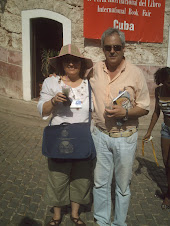
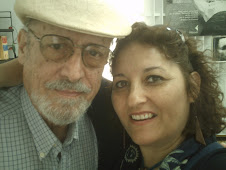
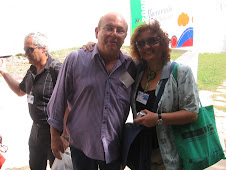


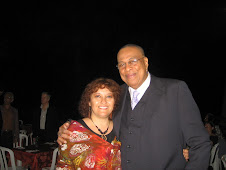




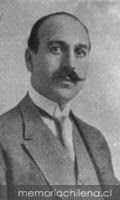


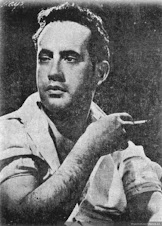
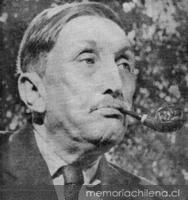
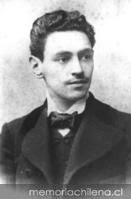
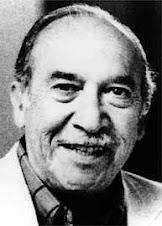
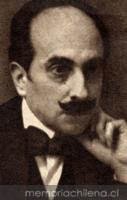




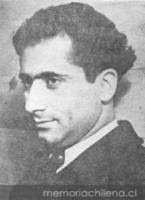
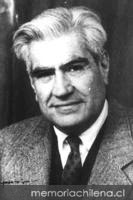

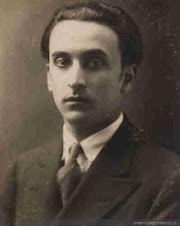
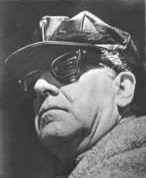

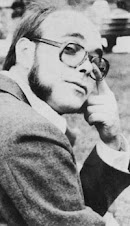


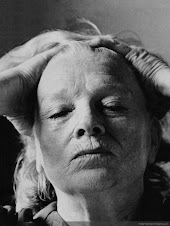




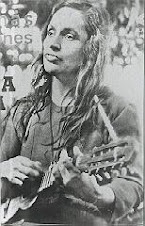










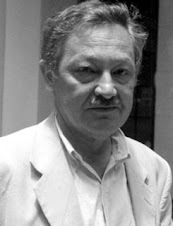

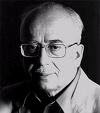




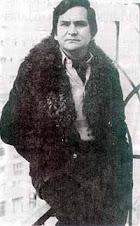



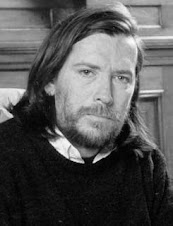



1 comentario:
Interesting view. Find an interview with Gabriel (imaginary) in http://stenote.blogspot.com/2014/09/an-interview-with-gabriel.html
Publicar un comentario